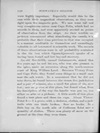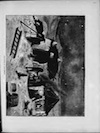Ockarnawole tells Schwatka about more bodies and a grave [as reported by Gilder] (1881)
An old Netchillik, named Ockarnawole, stated that five years ago he and his son, who was also present in the igloo, made an excursion along the north-western coast of King William Land. Between Victory Point and Cape Felix they found some things in a small cask near the salt water. In a monument that he did not take down, he found between the stones five jack-knives and a pair of scissors, also a small flat piece of tin, now lost ; saw no graves at this place, but found what, from his description of the way the handle was put on, was either an adze or a pickaxe. A little north of this place found a tent place and three tin cups. About Victory Point found a grave, with a skeleton, clothes, and a jack-knife with one blade broken. Saw no books. In a little bay on the north side of Collinson Inlet saw a quantity of clothes. There was plenty of snow on the ground at the time they were there.
Viewing this statement in the light of our subsequent search upon this ground, I am inclined to believe that the grave they found was not at Victory Point, but was Irving's grave, about three miles below there. We saw no evidence of any grave at Victory Point, though we made a particularly extended search around that entire section of the country. The little bay spoken of is also probably the little bay where Lieutenant Irving's grave was discovered. There is a little bay on the north side of Collinson Inlet, but Lieutenant Schwatka and I visited it several times without finding any traces of clothing or any other evidences of white men having been there ; and from what we saw at other places it seems almost impossible that there could have been much there as late as five years ago without some indications remaining. The vicinity of places where boats had been destroyed, or camps where clothing was found, were invariably indicated by pieces of cloth among the rocks, at greater or less intervals, for a long distance - sometimes as far as one or two miles on either side, and it would be almost impossible to escape seeing the principal point when led to it by such gradually cumulative evidence.




